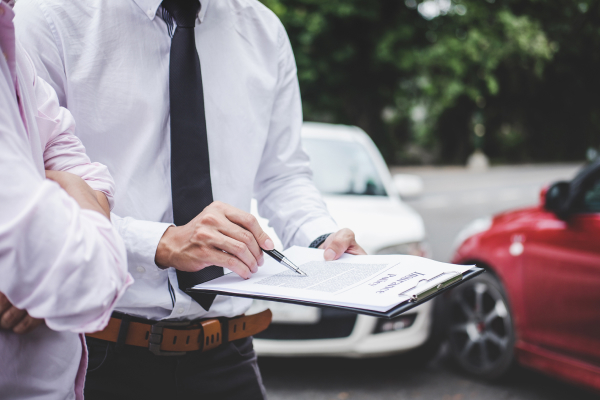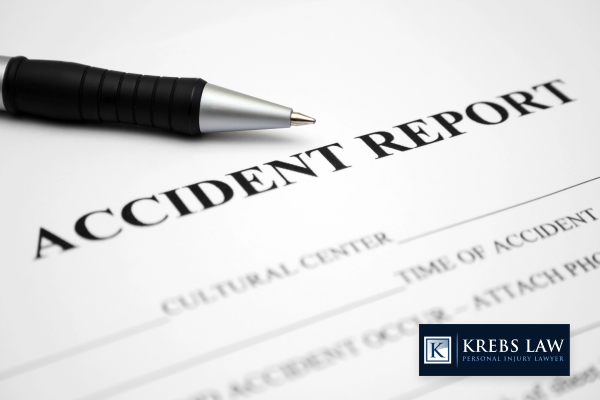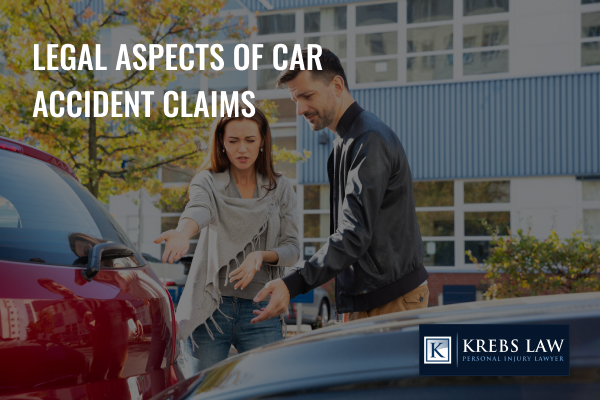This page was written, edited, reviewed & approved by JR Krebs following our comprehensive editorial guidelines. JR Krebs, the Founding Partner, has years of legal experience as a Personal Injury attorney. Our last modified date shows when this page was last reviewed.

When you get involved in a car accident, knowing how to address the situation can greatly affect the outcome of your insurance claim. Dealing with car accidents can be stressful, not just physically but also emotionally and financially.
Awareness of the steps to take immediately after the incident and how to go through the vehicle damage claims process is important. It helps ensure you receive the compensation you deserve for vehicle damage, medical expenses, and other losses. At Krebs Law, we help you address car accident claims.
Navigating a car accident claim involves more than just reporting the scene of the accident or incident to your insurance company. You need to know the nature of the accident, gather the right documentation, and often negotiate with insurance adjusters.
Knowing your rights and responsibilities under your auto insurance policy can protect you against unfair settlement offers. A detailed awareness of your insurance coverage and the legal aspects of collision claim can also considerably affect the compensation you receive.
A car accident claim is a process you initiate with an insurance company after you've been involved in a car accident. This claim is essential for receiving compensation for damages to your vehicle and covering any medical expenses incurred.
The claims process involves assessing the extent of damage, determining fault, and negotiating with insurance adjusters. It's important to know the specifics of your car insurance policy to be familiar with what is covered.
Initiating a car accident claim can sometimes be straightforward, but complications often arise, especially when the parties involved disagree on who is at fault. Each step, from documenting the accident scene, to dealing with insurance companies, demands careful attention.
Proper documentation and adherence to procedures greatly increase your chances of a favorable outcome. Knowing the types of car and truck accidents and common causes can also help you effectively handle your claim.


Knowing the legal aspects of a motor vehicle accident claim is important. It involves knowing how fault is determined, what damages you can to file a claim, and navigating the insurance claims process.
In Alabama, liability insurance is required, which covers damages if you're at fault. Knowing these laws helps you better prepare for how to handle your claim.
Determining who is at fault in a car accident involves assessing the circumstances and actions of each driver at the time of the accident. Fault is critical because it affects how much compensation you can receive.
In some cases, fault is shared between drivers, which can complicate claims. It is vital to know the state laws regarding no fault insurance and how they apply to your situation.
Comparative fault rules allow for the sharing of fault among drivers based on their degree of responsibility for the accident.
In Alabama, if you are found to be less than 50% at fault, you can still pursue damages, but your compensation will be cut by the percentage of your blame. This rule emphasizes the importance of a thorough investigation and strong evidence to support your claim.
Handling an auto accident claim can be difficult, especially when dealing with disputed liability and insurance denials. Disputes over who is at fault can delay the settlement process and complicate negotiations.
Insurance companies might deny claims if they believe their policyholder is not at fault or if they dispute the extent of your injuries. You may also have questions about the insurance claim process and car loan.
Disputed liability occurs when the insurance company does not agree with your version of events and denies your claim. This can notably delay your compensation and repair process and may require additional evidence or legal intervention.
Insurance denials can also occur if the company challenges the severity of your injuries or the necessity of your medical treatment. They might even question your repair costs or your rental car reimbursement coverage. It is essential to have a knowledgeable attorney who can fight for your rights and advocate for a fair settlement.
Cases involving severe injuries or multiple parties require detailed investigations and complex legal strategies. These types of car accidents often result in serious injuries and in higher medical bills and may involve several insurance companies.
Coordinating multiple claims, negotiating with various parties, and litigating legal defense in court can be overwhelming without legal assistance. A skilled attorney can manage these complexities. We strive to recover fair compensation for your losses.

If you've been involved in a car accident or need help with car accident claims, don't deal with the complex legal and insurance landscape alone. Partner with Krebs Law, and let our experienced Tuscaloosa car accident lawyer help you maximize your claim. Contact us today to schedule a free case consultation.

J.R. is dedicated to providing personalized representation, avoiding a one-size-fits-all approach. He tailors his strategy to the unique challenges and needs of each client and case, ensuring focused and individualized attention.
His practice mainly covers Plaintiff’s Personal Injury, including car and 18-wheeler accidents, slips and falls, dog bites, defective products, and wrongful death. He also handles commercial disputes on contingency, with experience in contracts, construction, and probate. For any dispute headed toward litigation, J.R. develops an aggressive strategy to maximize your recovery through negotiation, arbitration, or trial.


"*" indicates required fields

"*" indicates required fields